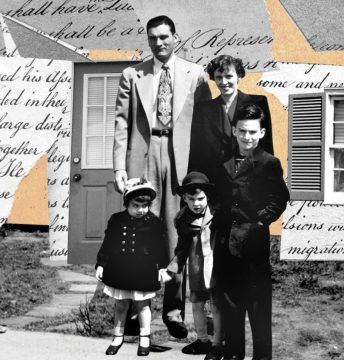Jedediah Britton-Purdy in The New Republic:
 John Rawls, who died in 2002, was the most influential American philosopher of the twentieth century. His great work, A Theory of Justice, appeared in 1971 and defined the field of political philosophy for generations. It set out standards for a just society in the form of two principles. First, a just society would protect the strongest set of civil liberties and personal rights compatible with everyone else having the same rights. Second, it would tolerate economic inequalities only if they improved the situation of the poorest and most marginalized (for example, by paying doctors well to encourage people to enter a socially necessary profession).
John Rawls, who died in 2002, was the most influential American philosopher of the twentieth century. His great work, A Theory of Justice, appeared in 1971 and defined the field of political philosophy for generations. It set out standards for a just society in the form of two principles. First, a just society would protect the strongest set of civil liberties and personal rights compatible with everyone else having the same rights. Second, it would tolerate economic inequalities only if they improved the situation of the poorest and most marginalized (for example, by paying doctors well to encourage people to enter a socially necessary profession).
Taken seriously, Rawls’s principles would require a radical transformation: no hedge funds unless allowing them to operate will benefit the homeless? No Silicon Valley IPOs unless they make life better for farmworkers in the Central Valley? A just society would be very different from anything the United States has ever been. Rawls argued that justice would be compatible with either democratic socialism or a “property-owning democracy” of roughly equal smallholders. One thing was clear: America could not remain as it was, on pain of injustice.
It did not remain as it was, but Rawls’s vision did not triumph either. A Theory of Justice was published in 1971, just before economic inequality began its long ascent from its lowest level in history to today’s Second Gilded Age.
More here.
